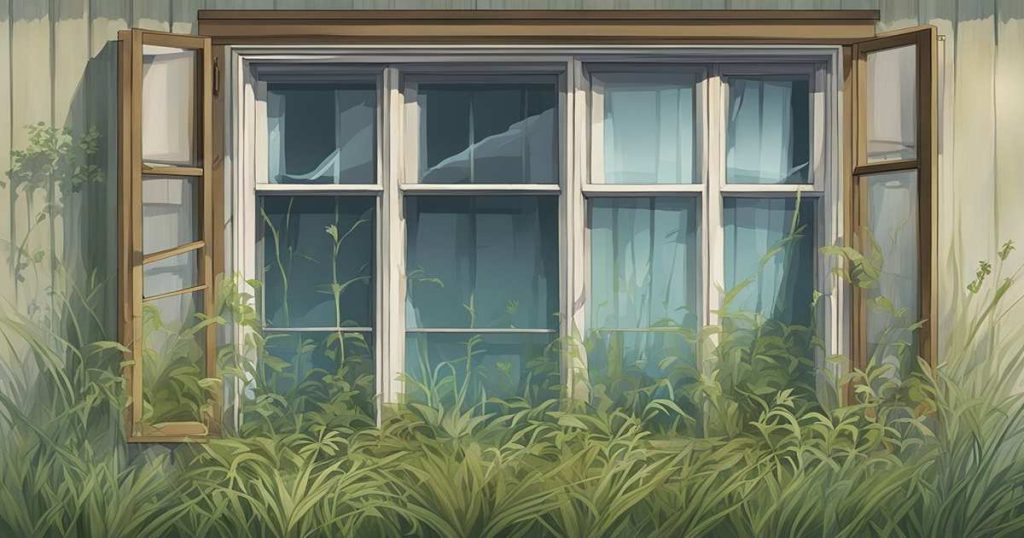
California Property Damage Statute of Limitations: What You Need to Know
If you’ve experienced property damage in California, you may have legal options available to you. It’s important to understand the property damage statute of limitations in California before pursuing legal action. A statute of limitations is a legal time limit for filing a lawsuit. It varies depending on the type of case and the state in which it is filed.

In California, the statute of limitations for property damage cases is generally three years from the date of the damage. This means that if you wait too long to file a lawsuit, you may lose your right to seek compensation for the harm caused. Exceptions and special circumstances may affect the statute of limitations in your case. Understanding the nuances of the law is crucial. It helps protect your legal rights.
Key Takeaways
- California’s property damage statute of limitations is generally three years from the date of the damage.
- Filing a lawsuit after the statute of limitations has expired can result in losing your right to seek compensation.
- Exceptions and special circumstances may affect the statute of limitations in your case.
Understanding Property Damage Statute of Limitations California
If you have suffered property damage in California, you may be wondering how long you have to file a lawsuit. You would file to seek compensation for the harm. This is where the statute of limitations comes into play. The statute of limitations is a legal time limit. It puts a strict deadline on your right to file a lawsuit over any kind of legal dispute or harm suffered.
General Overview
California’s statute of limitations for property damage claims is generally three years. This means individuals have three years from the property damage date to file a lawsuit. They can seek compensation for the harm caused. It is important to note that the statute of limitations can vary. This depends on the subject matter of the lawsuit.
Specific Time Frames for Property Damage
The California statute of limitations for property damage is set out in the Code of Civil Procedure. It is in Section 338. It is the deadline to ask for a money award to cover injury to either real property or personal property. This section establishes a three-year limit for:
- An action for trespass upon or injury to real property
- An action for taking, detaining, or harming goods or chattels
Tolling of the Statute of Limitations
In some cases, the statute of limitations period may be “tolled” or paused. Tolling can occur for various reasons, such as when the defendant is a minor or is out of state. Additionally, if the plaintiff is not aware of the property damage, the statute of limitations may be tolled. The statute of limitations may be tolled until the plaintiff discovers the damage.
It is important to keep in mind that the statute of limitations deadline is a strict deadline. If you fail to file your property damage claim within the applicable limitations period, you may be barred from bringing your case to court.
In case of property damage, it’s best to consult a personal injury lawyer. They can guide you through the legal process. They can help you file your property damage claim before the statute of limitations deadline.
Legal Actions and Procedures
If you have suffered property damage in California, you have the right to sue the responsible party. You must know the statute of limitations for property damage lawsuits in California. The statute of limitations is a legal time limit for filing a lawsuit, and it varies depending on the type of case. In California, the time limit for property damage lawsuits is usually three years. This is stated in the California Code of Civil Procedure Section 338.
Filing a Lawsuit for Property Damage
If you wish to file a lawsuit for property damage, you must do so within three years from the date the damage occurred. If you file after the statute of limitations deadline has passed, the court will likely dismiss your case. You will lose your right to sue. To file a lawsuit, you must follow the procedures in the California Civil Code of Procedure. You may also want to consider hiring a personal injury lawyer to help you navigate the legal process.
Claims Against Government Agencies
If your property damage claim is against a government agency in California, you must file an administrative claim with the agency within six months of the incident. This is per California Government Code Section 911.2. If the government agency denies your claim, you have six months from the date of the denial to file a lawsuit. Claims against the government have a shorter time limit than other property damage claims. It is essential to act quickly.
What Happens When the Statute Expires
If you do not file a lawsuit or an administrative claim within the statute of limitations deadline, you will lose your right to pursue legal action. There are some exceptions to the statute of limitations rules. For example, if the defendant left the state after the incident, the statute of limitations may be “tolled,” or paused. This would happen until the defendant returns. Additionally, if the property damage was caused by medical malpractice or wrongful death, the statute of limitations may be different. It is essential to consult with a personal injury lawyer. They can help you understand the specific statute of limitations laws that apply to your case.
In summary, if you have suffered property damage in California, you must file a lawsuit or an administrative claim within the statute of limitations deadline. Failure to do so will result in the loss of your right to pursue legal action. Therefore, it is crucial to act quickly. Consult with a personal injury lawyer. Ensure that you follow the correct legal procedures. Protect your rights.
Exceptions and Special Circumstances
In California, the statute of limitations for property damage claims is generally 3 years. It begins on the date of injury or damage. Exceptions and special circumstances can affect the deadline for filing a lawsuit.
Property Damage Involving Minors
If the property damage claim involves a minor, the statute of limitations tolls, or pauses, until the minor reaches the age of 18. At that point, the minor has 3 years to file a lawsuit for property damage.
Medical Malpractice and Wrongful Death
In cases of medical malpractice or wrongful death, the statute of limitations can vary. It depends on the type of claim. In medical malpractice cases, the statute of limitations is generally 3 years from the date of injury. It is 1 year from the date the injury was discovered, if that comes first. For wrongful death cases, the statute of limitations is generally 2 years from the date of death.
Discovery Rule Exceptions
In some cases, the statute of limitations can begin to run from the date of discovery. This can happen instead of beginning on the date of injury. This is known as the discovery rule. It applies in cases where the injury or damage was not immediately apparent. For example, if a property owner discovers damage to their property caused by a neighbor’s negligence, the statute of limitations would begin to run from the date of discovery. This is instead of the date of injury.
These exceptions and special circumstances do not apply to all property damage claims. It’s important to note that. If you are unsure about the deadline for your property damage claim, consult a personal injury lawyer. They can help you understand your legal options and ensure you file your claim on time.
In general, the statute of limitations for property damage claims in California is 3 years from the injury or damage date. Exceptions and special circumstances can affect the deadline for filing a lawsuit. For example, there are exceptions for minors, medical malpractice, and wrongful death cases. The discovery rule also applies.
Frequently Asked Questions
What is the time limit for filing a property damage lawsuit in California?
In California, the statute of limitations for property damage lawsuits is three years from when the damage occurred. This means that you have three years from the date of the incident to file a lawsuit seeking compensation for the harm caused. If you do not file a lawsuit within this time frame, the other party can ask the judge to dismiss the case. You will lose your right to seek compensation.
How long do you have to file a negligence claim related to property damage in California?
If you are filing a negligence claim related to property damage in California, the statute of limitations is also three years from the date of the incident. Negligence claims arise when someone fails to exercise reasonable care. This causes damage to another person’s property. If you believe someone’s negligence damaged your property, file a claim within three years.
Can the statute of limitations for property damage claims be extended under certain circumstances in California?
In some cases, the statute of limitations for property damage claims in California can be extended. If you did not immediately notice or hide the damage, the statute of limitations may extend to three years from the date you discovered the damage. Additionally, if the responsible party for the damage leaves the state or becomes otherwise unavailable, they may toll, or pause, the statute of limitations. It would stay paused until the party returns or becomes available.
What types of compensation are available for property damage in California?
If you are successful in your property damage lawsuit in California, you may be entitled to several types of compensation. These may include compensation for repair or replacement costs. They may also cover loss of use of the damaged property and any other economic losses resulting from the damage. You may also be entitled to compensation for non-economic damages. These include pain and suffering, emotional distress, and loss of enjoyment of life.
Are there any exceptions to the statute of limitations for property damage insurance claims in California?
If you are filing a property damage insurance claim in California, the statute of limitations may be different. The limit for lawsuits is three years. Check your insurance policy for the specific time limit to file a claim. In some cases, the time limit may be shorter than three years. It is important to file your claim as soon as possible after the damage occurs.
Beyond what duration is a property damage claim no longer actionable in California?
If you do not file a property damage lawsuit within three years of the date of the incident in California, your claim is no longer actionable. This means that you will not be able to recover compensation for the damage caused. It is important to file your lawsuit within this time frame. This will protect your legal rights and help you seek the compensation you deserve.


